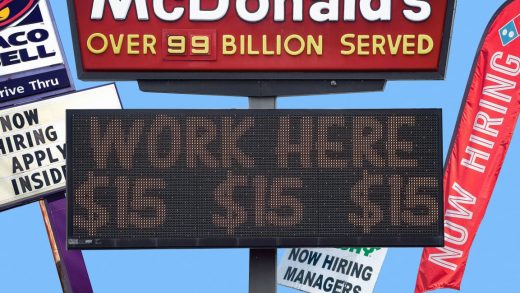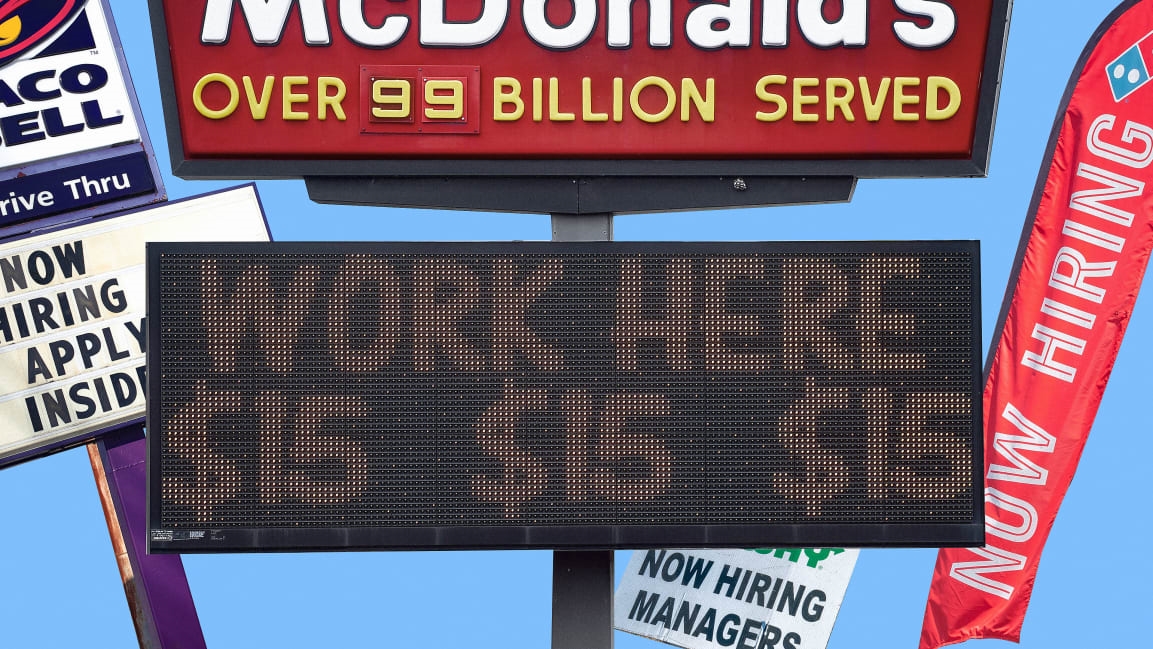We are fast food executives: If our industry is to survive, workers need a greater voice
The food service industry is in a crisis of our own making. For decades, fast food companies have paid poverty-level wages, created dangerous working conditions, and disrespected employees. Millions of restaurant workers were fired or furloughed during the pandemic. Many others risked their health to go to work while enduring abuse from customers who didn’t want to wear masks. Now, fast food businesses across the country are losing money because they can’t attract enough workers.
These are not new problems, but we need new solutions; the status quo is not working. If the industry is to survive, it requires a better model—one that gives workers a voice in improving their jobs. Unfortunately, history has taught us that companies are unlikely to get there on their own. We need strong leadership and effective legislation—like California’s FAST Recovery Act—to create change.
Even in this Great Resignation era, the food service industry stands out for its absurdly high quit rate. Fast food companies can’t hire enough workers to replace those who leave. The resulting understaffing is costly; Domino’s, McDonald’s, Shake Shack, Taco Bell, and Starbucks are among the many businesses that are losing sales. Without enough workers, companies literally cannot keep their doors open. It is not an exaggeration to say the industry is facing an existential threat.
The causes of today’s labor turmoil are likely multifaceted, but not the least bit surprising. Food service jobs have been terrible for years. The median wage is only $11.47 per hour. At 30 hours a week (generous in this industry), that’s less than $18,000 per year—poverty level for a single parent, and not remotely close to a living wage.
Less than 15% of fast food workers get health benefits. Employers change schedules with little notice, and nearly 90% of workers have experienced wage theft (i.e., no overtime pay or required breaks, being forced to work off the clock). Tens of thousands of 911 calls each year come from fast food workers facing customer violence. Sexual harassment of female workers is rampant, and burn injuries are distressingly common. And without union representation or other forms of voice, workers are powerless to change any of this. It’s no wonder they are fed up; you would be too.
This situation was not inevitable. In fact, one of us founded &pizza, an award-winning pizza chain, precisely to show that investing in workers is not just the right thing to do—but it’s also good for business. We built a company for our workforce, not despite them. That’s why we were the first restaurant chain to pay a $15 minimum wage (our current average wage is $16; we are targeting $20).
That’s why we provide health benefits and paid sick leave, regardless of hours worked. That’s why we implemented a text-based communication platform that allows our workforce to be heard, and paid time off for voting activism, which allows our people to be seen. Empowering employees to influence what’s most important to them is vital—no one should have to choose between doing what they feel is right and receiving a paycheck. For many, justice in the workplace is a part of justice in America, and that calls us to action.
Our strategy has paid off. We haven’t been hurt by the so-called labor shortage because we built a business model around taking care of those who take care of us. Many business owners claim that they cannot pay people enough money to live on; our experience proves that these claims are false, designed to protect shockingly high executive pay and continued exploitation of hourly workers.
We want to believe that a combination of pandemic-induced moral clarity and an unprecedentedly tight labor market will make other companies in the industry do better. But a combination of short-term financial incentives, entrenched beliefs about the value of frontline workers, and fear of worker power makes that unlikely.
Consider the past two years: Food service workers risked their lives to drive profits for their employers. And while some of these employers did raise wages during the pandemic, most of their employees still don’t earn enough to make ends meet. Instead of working to build a sustainable business model that treats workers with dignity, large employers have been devoting their time and money to lobbying against higher wages and aggressively suppressing unionization efforts.
If change will not come from companies themselves, we need external pressure. That’s why we have been vocal in advocating for a $15 federal minimum wage. But a $15 wage is only the beginning. Workers need a seat at the table so they can engage in identifying problems, and setting and enforcing standards. Worker involvement not only ensures that the right problems are addressed, but it’s also critical to ensuring that regulations are upheld.
The FAST Recovery Act, which is up for a vote in January in the California Assembly, would give workers that seat. The bill would establish a first of its kind fast-food sector council, consisting of 11 members representing workers, employers (including franchisees and franchisors), and the state government. The council would develop industry-wide standards regarding issues affecting the health, safety, and employment of fast food restaurant workers, including wages and working conditions.
Our industry has failed its workers for too long. If the FAST Act passes, California’s half million fast food workers will have the power to make the change they need. Hopefully, the rest of the country will follow.
Michael Lastoria is the founder and CEO of &pizza. Katie Bach is &pizza’s head of strategy.
(56)



